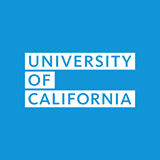预约演示
更新于:2025-05-07
mTOR x mTORC1 x FKBP1A
更新于:2025-05-07
关联
1
项与 mTOR x mTORC1 x FKBP1A 相关的药物作用机制 FKBP12配体 [+2] |
非在研适应症- |
最高研发阶段临床前 |
首次获批国家/地区- |
首次获批日期1800-01-20 |
100 项与 mTOR x mTORC1 x FKBP1A 相关的临床结果
登录后查看更多信息
100 项与 mTOR x mTORC1 x FKBP1A 相关的转化医学
登录后查看更多信息
0 项与 mTOR x mTORC1 x FKBP1A 相关的专利(医药)
登录后查看更多信息
26
项与 mTOR x mTORC1 x FKBP1A 相关的文献(医药)2024-06-01·Neurochemistry International
Rapamycin improves the survival of epilepsy model cells by blocking phosphorylation of mTOR base on computer simulations and cellular experiments
Article
作者: Qi, Yue ; Liu, Dengxin ; Wu, Mei ; Ma, Xuntai ; Li, Kezhou ; Ying, Xiran ; Cao, Jun-Feng ; Xiong, Li ; Zhang, Xiao ; Gong, Yunli
2023-12-01·MedComm
Ubiquitin‐specific protease 22 promotes tumorigenesis and progression by an FKBP12/mTORC1/autophagy positive feedback loop in hepatocellular carcinoma
Article
作者: Xu, Xiao ; Zhang, Lincheng ; Zhou, Wei ; Xu, Shengjun ; Zheng, Shusen ; Ye, Qianwei ; Ling, Sunbin ; Que, Qingyang ; Zhan, Qifan
2023-12-01·International Immunopharmacology
RapaLink-1 outperforms rapamycin in alleviating allogeneic graft rejection by inhibiting the mTORC1-4E-BP1 pathway in mice
Article
作者: Wang, Ning ; Zheng, Shusen ; Zhao, Wentao ; Yang, Zhentao ; Sun, Ruiqi ; Peng, Yiyang ; Zhou, Ke ; Xie, Haiyang ; Tang, Hong ; Song, Penghong ; Liang, Zhi
2
项与 mTOR x mTORC1 x FKBP1A 相关的新闻(医药)2025-04-22
·药事纵横
壹船已经在这片海面上游荡数月之久了。咸涩的海风割裂了第四十八次日出月落,吱呀的桅杆也在控诉着这漫长的漂泊。雅各布·罗格温,此次为发现新大陆而远航的探险家,虽心有不甘,可如今面对淡水即将枯竭的局面也只能考虑返航了。忽地,远处一抹葱绿却径直闯进罗格温的视野里,这不由得使他心头一紧,再定睛细看,那陆地上竟似有人群凝望着自己。罗格温难掩心中惊喜,当即跳到甲板上奔走呼号,催促着舰队全速前进。近了,更近了,探险队终于登上了寻了许久的陆地。可还没来得及庆祝,不可思议的一幕便出现在了众人眼前。原来那凝望自己的并不是地球上的人类,而是岛上一排排身长近十米,表情肃穆的巨人石像!这震撼的一幕让在场的所有人不寒而栗,而当他们还沉浸在对异世界的惊恐时,一群衣不遮体的土著却已冲到了他们面前。即便语言不通,罗格温也能从那大呼小叫中觉察出舰队的不受欢迎。因此他立即命令队员们避免与这些人发生冲突,在获取足够的淡水后便果断撤离。此次探险虽然没能达到自己的目的,可这块岛屿上的神奇之旅却也让罗格温难以忘怀。那天是1722年4月5日复活节,为了纪念这一历史性的时刻,他便给这块岛屿命名:复活节岛。贰罗格温的来访并未给小岛带来文明与进步。之后的一个多世纪里,岛上的居民在经历了奴役、屠杀、瘟疫、迁徙后,在1877年时人口仅剩一百多了。1888年,依然是复活节,智利政府宣布吞并这座岛屿,并将岛上大部分土地租给了牧羊公司。20世纪60年代,正值冷战高峰时期,整个世界都充满了无限的动荡与危机。由此,西方国家认为对南太平洋地区的科学探索具有高度战略意义。1964年,一项由加拿大海军支持,麦吉尔大学主导,WHO提供资金,Stanley C. Skoryna任总负责人的考察任务,即Medical Expedition to Easter Island,便应运而生了。该项目旨在通过医学与生态学等多学科交叉研究,揭示复活节岛原住民(拉帕努伊人)的遗传特征、疾病模式与孤立环境的关联性来探索孤立人群的健康演化机制,并计划在岛上设立长期观测站,持续记录人口动态、环境变化及疾病传播数据,以填补全球孤立人群长期追踪研究的空白。此后不久,一艘满载微生物学家、病毒学家、寄生虫学家、医生及水手等的考察船便在复活节岛靠岸了。来自加拿大蒙特利尔大学的微生物学家Georges L. Nógrad在这支研究团队中主要负责采集植物和收集土壤标本。那天,Nógrad突然发现了一个奇怪的现象:岛上的居民似乎不会患破伤风!这种感染经常在有马匹的地方发生,可复活节岛上不仅马匹众多,当地居民还有赤脚的习惯,理论上这会大幅度增加接触破伤风孢子的机会才对。为了探明其中的原因,Nógrad便从岛上采集了60余份土壤样品进行研究,最后却仅在一份样品中发现了破伤风孢子。之后他并未再对此作深入调查,而是将样品转交给了多家研究机构,其中便包括位于蒙特利尔的Ayerst制药公司。叁Ayerst制药公司的Surendra Nath Sehgal博士从寄来的土壤样本中分离得到一种稀有的放线菌——吸水链霉菌。通过发酵培养,他又从该链霉菌中提取得到一种具有良好抗炎、抗真菌作用的新化合物。为了纪念它的发现地,Sehgal博士便以复活节岛的别称RapaNui为其命名Rapamycin(雷帕霉素)。之后Sehgal把雷帕霉素部分样品寄到了美国癌症研究所,结果显示其竟然还对实体肿瘤有良好的抑制作用。1975年Sehgal团队通过改进分离技术,首次完成了雷帕霉素化学结构的鉴定,确认其属于“三烯大环内酯类”化合物。然而,由于雷帕霉素在动物模型中的毒性反应以及Ayerst公司的自身原因,对于雷帕霉素的研究并未沿着药物开发的方向深入进行。1983年,Ayerst关闭了其在蒙特利尔的研究所,Sehgal等一众核心人员也被转移到了新泽西的普林斯顿,雷帕霉素的研究项目就此搁浅,发酵罐中的样品也只能被Sehgal封存在了自家冰柜里。当它重见天日时,已是五年之后了。肆1987年,Wyeth与Ayerst合并。一年后年,Sehgal终于说服新的管理层重启对雷帕霉素的开发。基于之前的研究,Sehgal很快便发现了雷帕霉素具有免疫抑制的作用,而这一成果恰好赶上了当时抑制自身免疫药物的热潮。1983年,Sandoz公司研发了第一个器官移植免疫抑制剂环孢霉素,并很快成为该公司的重磅产品。1987年,日本藤泽制药也报道了他们开发的免疫抑制剂FK-506(即后来的他克莫司),其结构与雷帕霉素有部分相同。FK-506活性及结构让Wyeth-Ayerst对进一步将雷帕霉素开发为免疫制剂格外重视,随后他们便把重点放在了剂型开发上,并很快成功制备出了雷帕霉素口服制剂。1998年12月,在雷帕霉素临床试验即将完成之时,Wyeth-Ayerst向FDA递交了新药申请。临床数据显示,雷帕霉素与其他免疫抑制剂相比,其效力更高且毒性更低。1个月后,雷帕霉素获得FDA优先评价资格,并于1999年7月通过评审。同年九月,Wyeth-Ayerst拿到了FDA的正式批文。伍20世纪80年代,当雷帕霉素抑制肿瘤细胞的活性被发现后,化学家们便一方面着手对其进行化学结构改造以期获得更好的抗癌药物,另一方面开始对其作用机制展开研究。1990年,Sandoz公司的科学家发现了雷帕霉素能阻断细胞内管理生长与代谢的通道,这一通道存在于从单细胞酵母到人类细胞之中。在发现雷帕霉素对酵母及人类细胞都有抑制作用后,研究人员便意识到调控生长的基因是一个在长期进化中保留下来的高度保守基因。1991年,巴塞尔大学的Michael N. Hall教授在对酵母的相关研究中发现了通过与雷帕霉素作用对细胞生长和代谢产生影响的关键调控蛋白质,并将其命名为雷帕霉素靶标(Target of Rapamycin,TOR);1994年美国哈佛大学的Stuart L. Schreiber教授在哺乳动物细胞中发现了与TOR对应的雷帕霉素靶点并命名为mTOR。2004年,Hall教授发现mTOR其实是两个多蛋白mTORC1和mTORC2的复合物,其中mTORC1主要调控细胞生长,而mTORC2能够促进细胞存活。后续对雷帕霉素机制的进一步研究发现,其在人体内的一系列作用几乎都是与mTOR密切相关。mTOR能调控包括氨基酸、糖类、氧气等各种营养信号从而使细胞凋亡或增殖,雷帕霉素通过抑制mTOR从而抑制了细胞生长,显示出抗癌活性。同时,雷帕霉素与免疫蛋白FKBP12结合抑制了免疫B细胞及T细胞的生长从而产生免疫抑制作用。TOR的发现引起了生物界的极大重视,而雷帕霉素作为TOR信号抑制剂的发现对于理解和治疗癌症具有重要意义。大量的新药研发开始长期关注于mTOR激酶调节剂的识别与开发,并由此得到了一系列新型的mTOR抑制剂。此后,人们并未停下对雷帕霉素新药理作用探索的脚步。2003年,研究者发现降低mTORC1活性能明显延长秀丽隐杆线虫的寿命和功能。2009年,研究人员在《Nature》上论述了雷帕霉素可延长雄性小鼠9%及雌性小鼠14%的寿命,他们还在后续的研究中发现该药物能够减缓肌腱硬化和肝脏功能退化的速度,而这正是延缓衰老的两大指标。2014年,诺华制药发文称,经研究发现雷帕霉素能明显提高老年人免疫系统功能,且对衰老引起的阿尔茨海默症有一定的治疗作用……由此,雷帕霉素的命运被翻开了新篇章,而这似乎也预示着人类更辽阔的未来:寿追彭祖不可及,药助延年或可期。陆如今,复活节岛上那神秘的摩艾石像依旧沉默地凝望着未知的远方,就像三百年前罗格温来时的模样。它目睹了岛上文明的兴起与衰落,也为人类送去了珍藏许久的宝藏。它仍将继续伫立着,与更多的人类昔日文明遗迹一起,守望着那些散落在世界各地角落里的大自然造物时的无心馈赠。参考文献:1. 天然药物化学史话:雷帕霉素2. Rapamycin:a novel immunosuppressive macrolide3. Rapamycin's secrets unearthed4. 雷帕霉素免疫抑制剂作用机制的研究进展5. mTOR signaling in growth control and disease6. 靶向mTOR的抗肿瘤与抗衰老药物研究进展药事纵横投稿须知:稿费已上调,欢迎投稿
孤儿药
2022-10-17
小分子药物的使用通常会导致全身的药理作用,这会同时提高药效和毒性,并影响其治疗指数。虽然脱靶效应可以通过改善药物特异性的化学修饰来缓解,但靶向-组织外毒性是一项独特的挑战,需要精确控制组织分区。靶向-组织外毒性会影响常用药物,如他汀类药物(骨骼肌中HMG CoA还原酶抑制导致肌病)和第一代抗组胺药(大脑中H1受体被阻断导致嗜睡),及其他有效治疗药物的安全使用。mTOR的化学抑制剂就是一个很好的例子。尽管在许多中枢神经系统(central nervous system, CNS)疾病中已经研发了变构和正构mTOR抑制剂,包括结节性硬化症、胶质母细胞瘤和酒精使用障碍,但mTOR的全身抑制与各种剂量限制不良反应相关(如免疫抑制、代谢障碍和儿童生长抑制)。如果这些mTOR抑制剂的药理作用能够局限于中枢神经系统,那么它们的治疗窗口将大大拓宽。 mTOR激酶的靶向治疗可以通过变构和正构两种方式实现。目前mTOR抑制剂主要分为三类:抗生素变构mTOR抑制剂(第一代)、ATP竞争性mTOR抑制剂(第二代)和其他新型mTOR抑制剂(第三代)。第一代mTOR抑制剂一般是指抗生素类变构mTOR抑制剂,主要是雷帕霉素(Rapamycin)及其衍生物(Rapalogs)。雷帕霉素并不直接抑制mTOR 活性,它与FK506结合蛋白12(FK506-binding protein 12, FKBP12)结合形成FKBP12-雷帕霉素复合物,该复合物再结合mTOR的FRB结构域,其中,雷帕霉素嵌入由 FKBP12 和 mTOR 的 FRB 结构域形成的空腔中,改变mTOR的构象,从而以变构的方式抑制mTORC1活性。因此FKBP12只是雷帕霉素介导的 mTORC1 抑制的辅助因子。第二代mTOR抑制剂主要是ATP竞争性抑制剂,与mTOR激酶结构域中的ATP结合位点结合。第三代mTOR抑制剂RapaLink-1是将雷帕霉素和mTOR激酶抑制剂MLN018整合到同一个分子上而获得的,其通过结合FKBP12的FRB结构域作用于mTOR,同时连接的小分子抑制剂MLN018作用于mTOR激酶结构域。尽管其分子量较大(1784 Da),与早期的mTOR抑制剂相比,RapaLink-1在促进胶质母细胞瘤消退方面表现出了增强的体内疗效。由于RapaLink-1含有一个TOR激酶抑制剂(TOR kinase inhibitor, TORKi)部分,它与ATP口袋结合。为了知道RapaLink-1与FKBP12的相互作用是否对其抑制mTOR必不可少,研究人员用纯化的mTOR蛋白进行了体外激酶测定,发现无论FKBP12存在与否,RapaLink-1均表现出与MLN0128 (RapaLink-1的TORKi部分)相同的半最大抑制浓度(half-maximal inhibitory concentration , IC50)值。这表明在无细胞环境下,RapaLink-1可以不依赖FKBP12而作用mTOR的活性位点。 然而,当研究者在细胞中测试RapaLink-1时,他们观察到FKBP12对mTOR的抑制有很强的依赖性。在表达dCas9-KRAB的K562细胞中,用两种不同的sgRNA敲除FKBP12基因极大地阻碍了其细胞活性。当他们使用FK506 (FKBP12的高亲和力天然配体)阻断FKBP12的配体结合位点时,这种作用更加明显。用western blot检测mTOR信号,观察到类似的RapaLink-1对FKBP12的依赖性。10 nM的RapaLink-1将磷酸化的 S6 (S240/244)和磷酸化的4EBP蛋白 (T37/46)降低到几乎无法检测到的水平,而10 nM的RapaLink-1和10 μ M FK506的组合对这两种标记均无影响。这些结果强调,尽管FKBP12不是RapaLink-1在体外结合和抑制mTOR活性位点所必需的,但它是细胞活性所必需的,其可能是RapaLink-1在细胞内积累的接收器。 基于这一发现,研究者提出了一种化学策略,将已知的激酶抑制剂转化为FKBP12依赖的形式,可以实现对其他激酶靶点的脑特异性抑制:通过脑透性mTOR抑制剂(RapaLink-1)+FKBP12来在脑内发挥功能,而联合使用FKBP12的脑非渗透抑制剂(RapaBlock)来阻断脑外FKBP12对RapaLink-1的依赖作用。当RapaLink-1和RapaBlock这两种药物联合使用时,可促进在胶质母细胞瘤消退且检测不到全身毒性。为了确定具有适当通透性的候选FKBP12抑制剂(即细胞通透性但不渗透血脑屏障(blood–brain barrier, BBB)),他们考虑了已知的天然和合成的高亲和力FKBP12配体(例如FK506,rapamycin和SLF/Shield-1),但所有这些化合物都很容易穿过血脑屏障。因此,他们合成了一组SLF和FK506的衍生物,其中一些完全阻断了RapaLink-1对mTOR的抑制。他们对四种具有不同侧链化学类型的化合物进行了额外的体内筛选,分别分析了用RapaLink-1和候选化合物(分别为1和40 mg/kg)组合处理的小鼠的大脑和骨骼肌组织中的mTOR信号。FK506的吡啶氮氧化物衍生物(06-041)可以保护周围组织不受RapaLink-1的影响,但允许大脑中mTOR的有效抑制,他们将其命名为“RapaBlock”。此外,修饰FK506的C21烯丙基还有一个额外的好处——它取消了与FK506的天然靶标钙调神经醛酸的结合,其抑制会导致活化T细胞核因子(Nuclear factor of activated T cells, NFAT)信号的抑制,从而导致免疫抑制。RapaBlock和FK506同FKBP12的结合具有相当的亲和力(抑制常数(Ki)分别为3.1 nM和1.7 nM),但与FK506不同的是,RapaBlock对钙调磷酸酶没有表现出任何抑制活性。在细胞中,RapaBlock(最多10µM)本身不会影响mTOR信号,但会以剂量依赖性的方式减弱RapaLink-1的药理作用。RapaBlock在阻断雷帕霉素方面似乎更有效,其以100:1的化学计量率将磷酸化S6信号恢复到与未处理细胞相同的水平。这些数据表明,RapaBlock通过与细胞内FKBP12的竞争性结合,使RapaLink-1和雷帕霉素无法抑制mTOR。为了检验RapaLink-1和RapaBlock的联合作用是否能在体内对mTOR产生脑特异性抑制,他们用RapaLink-1(1 mg/kg)或RapaLink-1(1 mg/kg)和RapaBlock(40 mg/kg)的联合作用治疗健康BALB/cnu/nu小鼠,在4小时或24小时后用胰岛素(250 mU)刺激mTOR活性,并通过免疫印迹分析解剖组织。RapaLink-1和RapaBlock组合显示出显著的组织特异性效应:与只使用RapaLink-1的小鼠相比,大脑中的mTOR活性受到了相当程度的抑制,但骨骼肌中的mTOR活性没有受到抑制,未出现mTOR抑制剂常见的靶向副作用,如体重减轻、糖代谢受损和肝毒性。接下来,研究人员在裸鼠中建立表达萤火虫荧光素酶的U87MG细胞原位颅内异种移植瘤模型,并用RapaLink-1 (1 mg / kg)、RapaBlock (40 mg / kg)或两者的联合注射治疗这些小鼠,每5天注射一次。所有治疗均耐受良好,体重无明显变化。RapaLink-1单独使用或与RapaBlock联合使用均能显著抑制肿瘤生长并提高生存率,而单独使用RapaBlock对两者均无显著影响。在建立了这样一种二元治疗方法来实现对mTOR的脑特异性抑制后,研究人员想知道是否同样的策略可以适用于其他需要脑限制性药理学的药物。一个关键的挑战是,要使这种方法普遍化,“活性”组件(如RapaLink-1)必须依赖于FKBP12的可用性。他们首先用GNE7915进行尝试,GNE7915是一种富含亮氨酸重复激酶2 (leucine-rich repeat kinase 2, LRRK2)的有效和特异性抑制剂,在治疗帕金森病的临床前研究中。最近的研究表明,小分子抑制剂对LRRK2的系统性抑制可诱导II型肺细胞的细胞质空泡化,这表明这些化合物存在潜在的安全隐患。他们将FK506和GNE7915的药效团与哌嗪基团进行化学连接,合成了FK-GNE7915。在体外LRRK2激酶试验中,FK-GNE7915是GNE7915的次等抑制剂(IC50分别为107 nM和3.0 nM),尽管在实验中加入10 μ M FKBP12后其活性增强(IC50为21 nM)。然而,在量化磷酸化的LRRK2 (S935)水平作为LRRK2抑制标记的细胞试验中,FK-GNE7915比母化合物GNE7915更有效超过十倍(IC50分别为6.7 nM和81 nM)。这两个结果的并置表明FK506部分在FK-GNE7915增强的细胞效力中发挥了作用。他们推断,高亲和力FK506-FKBP12相互作用可以促进FK-GNE7915在细胞内的积累,类似于RapaLink-1的情况。这一特性允许研究人员通过控制FKBP12的可用性来编程抑制LRRK2。 综上,通过利用雷帕霉素类似物对FKBP12的独特功能依赖性,研究人员开发了一种方法,通过同时使用强效mTOR抑制剂(RapaLink-1)和FKBP12的细胞渗透性、BBB不渗透性配体(RapaBlock),实现脑特异性mTOR抑制。这种双重药理学策略实现了组织限制性mTOR抑制,降低了外周组织的毒性,并在异种胶质母细胞瘤模型中保持了RapaLink-1的治疗效果。基于这些发现,作者预期,同样的药物组合可能在其他由mTOR活性失调引起的中枢神经系统疾病(如酒精使用障碍)中具有更广泛的价值。这种方法与这些先例的不同之处在于,它不涉及两种对同一靶点或通路具有抵消作用的药物;相反,RapaBlock通过直接衰减激酶抑制剂的活性来控制组织特异性。因此,目前的体系具有适用于多种靶标的优势,只需要一个不变的RapaBlock分子和一个FKBP12依赖的抑制剂,可以根据FK506和先导化合物的结构轻松设计。虽然在本研究中关注的是蛋白质激酶,但似乎有理由期望该方法也适用于其他类的治疗靶点,如GTPase和组蛋白修饰酶。参考文献Ziyang Zhang, Qiwen Fan, Xujun Luo, Kevin Lou, William A Weiss, Kevan M Shokat. Brain-restricted mTOR inhibition with binary pharmacology. Nature. 2022 Sep;609(7928):822-828. doi: 10.1038/s41586-022-05213-y
免疫疗法小分子药物
分析
对领域进行一次全面的分析。
登录
或

生物医药百科问答
全新生物医药AI Agent 覆盖科研全链路,让突破性发现快人一步
立即开始免费试用!
智慧芽新药情报库是智慧芽专为生命科学人士构建的基于AI的创新药情报平台,助您全方位提升您的研发与决策效率。
立即开始数据试用!
智慧芽新药库数据也通过智慧芽数据服务平台,以API或者数据包形式对外开放,助您更加充分利用智慧芽新药情报信息。
生物序列数据库
生物药研发创新
免费使用
化学结构数据库
小分子化药研发创新
免费使用

